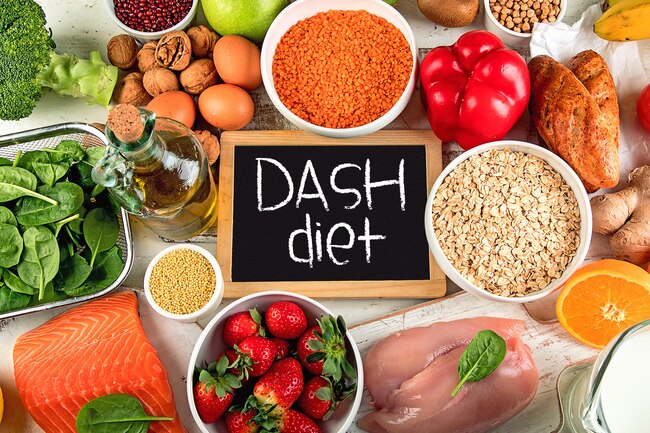Here are 5 reasons why following the latest novelty diet may not be a good way to lose weight.
1. Some diets can make you ill
Many diets, especially crash diets, are geared to dramatically reducing the number of calories you consume.
“Crash diets make you feel very unwell and unable to function properly,” says dietitian Ursula Arens. “Because they’re nutritionally unbalanced, crash diets can lead to long-term poor health.”
Find out how to start losing weight
2. Excluding foods is dangerous
Some diets recommend cutting out certain foods, such as meat, fish, wheat or dairy products.
Cutting out certain food groups altogether could prevent you getting the important nutrients and vitamins your body needs to function properly.
You can lose weight without cutting out foods from your diet. The Eatwell Guide shows the different foods we should be eating.
3. Low-carb diets can be high in fat
Some diets are very low in carbohydrates (like pasta, bread and rice), which are an important source of energy.
While you may lose weight on these types of diets, they’re often high in protein and fat, which can make you ill.
Low-carbohydrate diets can also cause side effects such as bad breath, headaches and constipation.
“It’s been suggested that the high protein content of these diets ‘dampens’ the appetite and feelings of hunger,” says Arens.
Many low-carbohydrate diets allow you to eat foods high in saturated fat, such as butter, cheese and meat.
Too much saturated fat can raise your cholesterol and increase your risk of heart disease and stroke.
4. Detox diets don’t work
Detox diets are based on the idea that toxins build up in the body and can be removed by eating, or not eating, certain things.
But there’s no evidence that toxins build up in our bodies. If they did, we’d feel very ill.
Detox diets may lead to weight loss because they involve restricting calories, cutting out certain foods altogether, such as wheat or dairy, and eating a very limited range of foods.
“Detox diets do not work,” says Arens. “They are, in effect, a form of modified fasting.”
5. Cabbage soup, blood group, the 5:2 diet and other fad diets are often far-fetched
Some fad diets are based on eating a single food or meal, such as cabbage soup, chocolate or eggs.
Others recommend eating foods only in particular combinations based on your genetic type or blood group.
Often there’s little or no evidence to back up these diets, and they can be difficult to keep to in the long term.
“If followed over long periods, these diets can be very unbalanced and bad for your health,” says Arens. “You may lose weight in the short term, but it’s much better to lose weight gradually and to be healthy.”



